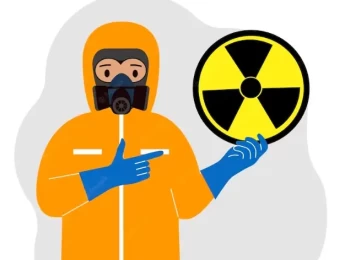This comprehensive course will equip professionals with the latest knowledge and skills to work safely with radioactive materials. By bridging theoretical principles with practical applications, the course ensures participants can effectively manage and mitigate the risks associated with radiation exposure in various settings. Delivered by experts in the field, the programme promotes a culture of safety and compliance with international standards.
Upon completion of this course, participants will be able to:
- Understand the principles and effects of radiation.
- Be able to detect, measure, and monitor radiation levels.
- Develop effective strategies for handling and storing radioactive materials safely.
- Implement robust emergency response plans to mitigate radiation accidents.
This course is intended for:
- Radiation safety officers
- Health physicists
- Laboratory technicians
- Medical personnel
- Nuclear facility operators
- Environmental health and safety consultants
The course employs a blend of interactive lectures, hands-on exercises, and case study analysis. Participants will engage in practical sessions using radiation detection instruments, ensuring a thorough understanding of theoretical concepts. Group discussions and scenario-based learning will foster critical thinking and collaborative problem-solving skills.
Day 5 of each course is reserved for a Q&A session, which may occur off-site. For 10-day courses, this also applies to day 10
Section 1: Introduction to Radiation Safety
- Fundamentals of Radiation and Radioactivity
- Regulatory Framework and Standards
- Types of Radiation Exposure and Their Effects
Section 2: Radiation Detection and Measurement
- Types of Radiation Detectors
- Calibration and Maintenance of Instruments
- Hands-on Practice: Using Radiation Detection Equipment
Section 3: Safe Handling and Storage of Radioactive Materials
- Proper Storage Techniques
- Transport Regulations and Protocols
- Incident Response Planning
Section 4: Radiation Protection Principles
- Dose Limits and Monitoring
- Personal Protective Equipment (PPE) and Shielding
- Case Studies: Successful Radiation Safety Practices
Section 5: Emergency Preparedness and Response
- Radiation Accident Scenarios
- Emergency Response Plans and Procedures
- Final Assessment and Group Discussion
Upon successful completion of this training course, delegates will be awarded a Holistique Training Certificate of Completion. For those who attend and complete the online training course, a Holistique Training e-Certificate will be provided.
Holistique Training Certificates are accredited by the British Assessment Council (BAC) and The CPD Certification Service (CPD), and are certified under ISO 9001, ISO 21001, and ISO 29993 standards.
CPD credits for this course are granted by our Certificates and will be reflected on the Holistique Training Certificate of Completion. In accordance with the standards of The CPD Certification Service, one CPD credit is awarded per hour of course attendance. A maximum of 50 CPD credits can be claimed for any single course we currently offer.
- Course Code PO2-119
- Course Format Classroom, Online,
- Duration 5 days









